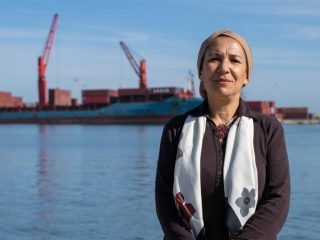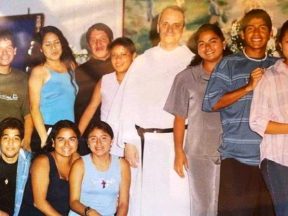The 4 Freedoms.
One of the most important aims of advocacy is building strong democracy and democratic organizations to hold those in power accountable, expanding citizen’s understanding of how power operates.
Many scientific and humanitarian reasons are impelling public authorities to impose on citizens an abundance of controls, restrictions of many kinds ranging from moving, sport, fitness to work, civil and religious gathering, domestic and international travelling. Tests and app control are raising the fear that, in the near future, it will become a threat to personal privacy and social democratic living.
In such a context, the Latin expression Magistra Vitae – used by Cicero in his De Oratore as a personification of history, comes instinctively to our minds. It is paraphrased in Historia est Magistra Vitae – History is life’s teacher – and conveys the idea that History’s lessons can in such difficult situations like today advocate for truth and democracy, serving as a lesson to the present and the near future, advising politicians to be guided by principles, not image consultants.
After the end of the Second World War, an exhausted and painful world, while embarking on the path of reconstruction not only material but also moral and ideological, which required new ideas in all areas, went back to Franklin D. Roosevelt’s 1941 State of the Union address, known as the Four Freedoms speech whose proposals founded the world, through instruments such as the Universal Declaration of Human Rights.
He stated notably, “In the future days, which we seek to make secure, we look forward to a world founded upon four essential human freedoms.
The first is freedom of speech and expression – everywhere in the world.
The second is freedom of every person to worship God in his own way – everywhere in the world.
The third is freedom from want – which, translated into world terms, means economic management which will secure to every nation a healthy peacetime life for its inhabitants – everywhere in the world.
The fourth is freedom from fear – which, translated into world terms, means a world-wide reduction of armaments to such a point and in such a thorough fashion that no nation will be in a position to commit an act of physical aggression against any neighbor – anywhere in the world.
His declaration of faith in these four freedoms were preceded by other strong words, “Certainly this is no time for any of us to stop thinking about the social and economic problems which are the root cause of the social revolution which is today a supreme factor in the world.
For there is nothing mysterious about the foundations of a healthy and strong democracy.
The basic things expected by our people of their political and economic systems are simple. They are:
Equality of opportunity for youth and for others. Jobs for those who can work. Security for those who need it. The ending of special privileges for the few. The preservation of civil liberties for all. The enjoyment of the fruits of scientific progress in a wider and constantly rising standard of living. These are the simple, basic things that must never be lost sight of in the turmoil and unbelievable complexity of our modern world.
Many subjects connected with our social economy call for immediate improvement. As examples: We should bring more citizens under the coverage of old-age pensions and unemployment insurance. We should widen the opportunities for adequate medical care.
We should plan a better system by which persons deserving gainful employment may obtain it.” However, all these beautiful words were destroyed 11 months after by the surprise Japanese attack on U.S. forces in Pearl Harbor, Hawaii that caused the United States to declare war on Japan, December 8, 1941. Thus began the Second World War.
Maybe History as a life’s teacher would remind us the sentence of Ernest Gaines, “Words mean nothing. Action is the only thing. Doing. That’s the only thing.”
John Paul Pezzi, mccj
VIVAT International NGO
with consultative special status at UN



